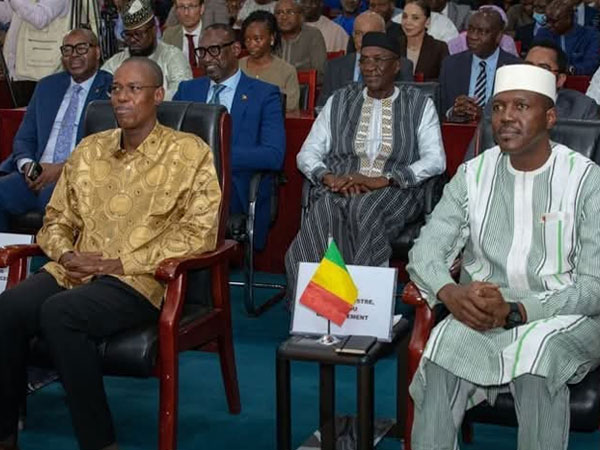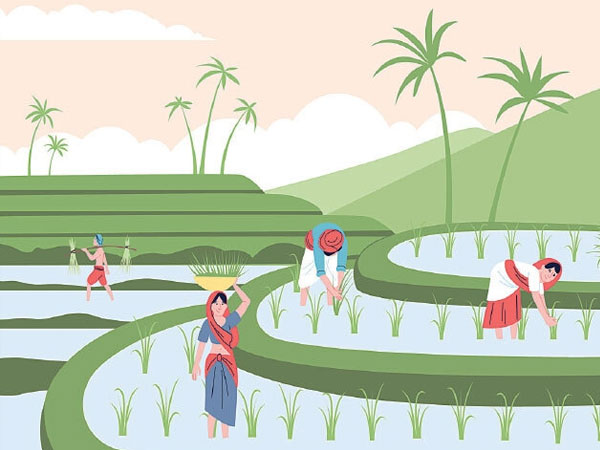 In a bid to overcome its persistent rice deficit despite increasing domestic yields, Mali launched a call for funding on Thursday in Bamako to support its National Program for the Intensive Rice Cultivation System (PN-SRI).
In a bid to overcome its persistent rice deficit despite increasing domestic yields, Mali launched a call for funding on Thursday in Bamako to support its National Program for the Intensive Rice Cultivation System (PN-SRI).
The ambitious goal is to reach a production level of 5.5 million tonnes by 2030, a significant increase from the current three million tonnes, ultimately positioning rice cultivation as a cornerstone of the nation’s food sovereignty and economic development.
Mali made a strong appeal to both its national and international partners on Thursday, April 17, 2025, with the opening of the National Forum on Sustainable Financing of the National Program for the Intensive Rice Cultivation System (PN-SRI). Chaired by Prime Minister Major General Abdoulaye Maiga, the forum’s primary objective is to mobilize the necessary financial resources to transform rice cultivation into a strategic driver for food security and economic growth.
The forum is taking place against a backdrop where, despite an estimated national rice production of 3,024,000 tonnes in the 2023-2024 agricultural season (up from 2,900,000 tonnes in the previous season), Mali still relies on imports to meet its domestic rice consumption demands. The government has set an ambitious target to increase this production to 5.5 million tonnes by the year 2030, representing an increase of over 80 percent, primarily through the strategic implementation of the PN-SRI.
This structural program aligns with Mali’s long-term development vision, “Mali Vision Kura ɲɛtaasira ka bɛn san 2063,” and the National Strategy for Emergence and Sustainable Development (SNEDD 2024-2033). It is built upon a firm commitment to modernizing rice cultivation techniques, enhancing the capabilities of Malian rice farmers, and developing crucial processing and marketing infrastructure. Prime Minister Maiga emphasized that this ambitious undertaking is driven by the vision of the President of the Transition, General Assimi Goïta, who aims to establish Mali as a regional agricultural powerhouse. The government has already pledged its contribution of 60 percent of the total funding required for the PN-SRI, amounting to 14.112 billion CFA francs.
Speaking at the opening of the forum, Fayiri Bolly, President of the Rice Interprofessional Association, warmly welcomed the initiative, expressing his belief that this forum provides a decisive platform for attracting vital investment and securing the livelihoods of the rural agricultural sector. He also underscored the critical need for concrete commitments from partners to strengthen the country’s overall food resilience.
The ceremony was marked by the signing of a commitment manifesto between the government, key stakeholders in the agricultural sector, technical and financial partners, and civil society organizations. Prime Minister Maiga also acknowledged and welcomed the active support of German cooperation in the development of Mali’s rice sector, urging for the expansion of such beneficial partnerships. This national forum takes place within a regional context characterized by significant challenges related to food security and the impacts of climate change. By strategically prioritizing rice cultivation at the core of its agricultural policies, Mali aims to significantly strengthen its self-sufficiency in a staple food and consolidate its role within the Alliance of Sahel States (AES).














© Copyright 2025 The SSResource Media.
All rights reserved.